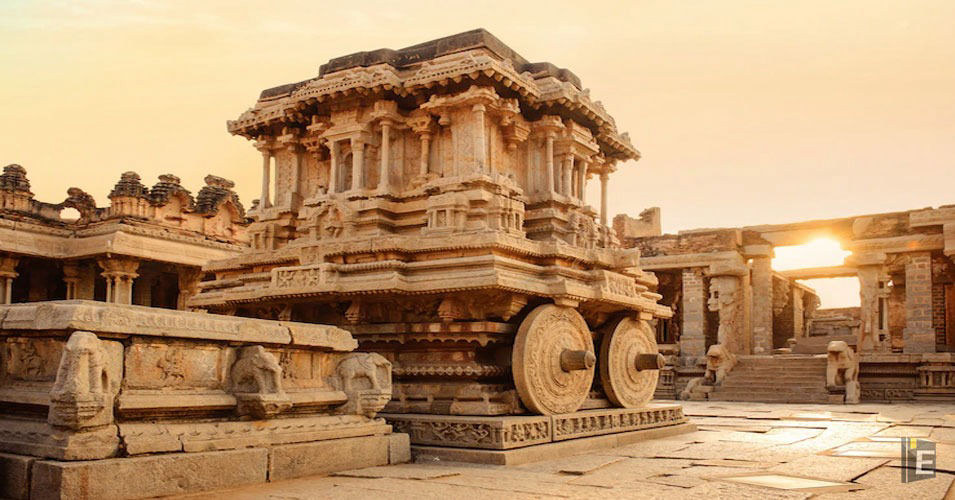Top 50 World History GK Questions

World History GK Questions
Q : When is the Hiroshima Day observed?
(A) August 5
(B) August 4
(C) August 6
(D) August 3
Correct Answer : C
Explanation :
Hiroshima Day is an annual observance held on August 6 to commemorate the atomic bombing of Hiroshima by the United States in 1945. The bombing killed over 140,000 people and left hundreds of thousands more injured.
Chichen Itza is located in which country?
(A) Mexico
(B) United States
(C) Chile
(D) Argentina
Correct Answer : A
Explanation :
Chichen Itza is located in (A) Mexico.
Chichen Itza is a famous archaeological site and ancient city located in the Yucatán Peninsula of Mexico. It was a major center of the Maya civilization and is renowned for its well-preserved pyramid, known as El Castillo. Chichen Itza is recognized as a UNESCO World Heritage Site and is one of the most visited archaeological sites in Mexico, attracting tourists and researchers interested in exploring the rich history and architecture of the Maya people.
World Trade Organization came into existence in……
(A) 1992
(B) 1993
(C) 1994
(D) 1995
Correct Answer : D
Explanation :
The World Trade Organization (WTO) officially came into existence on January 1, 1995. It replaced the General Agreement on Tariffs and Trade (GATT) and was established to facilitate international trade negotiations, resolve trade disputes, and provide a framework for the conduct of international trade. The WTO aims to promote free and fair trade among its member countries by establishing rules and agreements that govern global commerce. It serves as a forum for member nations to negotiate trade agreements and address issues related to trade policies and practices.
When did the war of Americans Independence take place?
(A) 1770
(B) 1772
(C) 1774
(D) 1776
Correct Answer : D
Explanation :
The War of American Independence, also known as the American Revolutionary War, took place between 1775 and 1783. Therefore, the correct option is not listed among the provided choices. If we consider the closest option, (D) 1776, it is a significant year within the timeframe of the war as the Declaration of Independence was adopted on July 4, 1776. The war itself had already begun in 1775.
What is the full form of ISI Pakistan?
(A) Inter Services Intelligence
(B) Inter Solution Intelligence
(C) Inter Surgical Improvement
(D) International Survey
Correct Answer : A
Explanation :
The Inter-Services Intelligence (ISI) is the premier intelligence agency of Pakistan, responsible for providing critical national security and intelligence assessments to the government. It was established in 1948 and operates under the jurisdiction of the Pakistan Ministry of Defence. The ISI is primarily focused on safeguarding Pakistan's interests, both domestically and internationally, and plays a crucial role in counterintelligence, counterterrorism, and strategic intelligence.
Under whose leadership did America achieve independence in 1776 AD?
(A) Abraham Lincoln
(B) Jeorge W. Bush
(C) Jeorge Washington
(D) None of these
Correct Answer : C
Explanation :
America achieved independence in 1776 under the leadership of (C) George Washington. Abraham Lincoln and George W. Bush were Presidents of the United States in later periods, and they were not involved in the events leading to the Declaration of Independence in 1776.
Which organization publishes ‘World Development Report’?
(A) United Nations Development Programme (UNDP)
(B) World Economic Forum
(C) International Monetary Fund (IMF)
(D) World Bank
Correct Answer : D
Explanation :
The "World Development Report" is an annual publication by the World Bank. It provides in-depth analysis and insights into key development issues facing the world. Each report focuses on a specific theme, addressing economic, social, and environmental challenges. The aim is to offer policymakers, researchers, and development practitioners valuable information and perspectives to inform decision-making and promote sustainable development globally.
In which year did the Partition of Bengal take place?
(A) 1910
(B) 1902
(C) 1903
(D) 1905
Correct Answer : D
Explanation :
The Partition of Bengal occurred in 1905 when the British colonial administration decided to divide the province of Bengal in British India. The primary stated reason was administrative efficiency, but it had significant political implications. The partition led to widespread protests and opposition from various communities, particularly due to concerns about communal tensions and political motivations. In response to the widespread protests, the British government annulled the partition in 1911 and reorganized Bengal. The event had lasting effects on the political consciousness of the region and contributed to the development of political movements in India.
India became a member of the United Nations in_____.
(A) 1963
(B) 1960
(C) 1951
(D) 1945
Correct Answer : D
Explanation :
India became a member of the United Nations (UN) on October 30, 1945, shortly after gaining independence from British rule. As one of the founding members of the UN, India has been actively involved in international diplomacy and has contributed to various UN initiatives and peacekeeping missions over the years.
Mount Everest is named after -
(A) The King of England
(B) The First climber of the peak
(C) A Surveyor General of India
(D) The Viceroy of India
Correct Answer : C
Explanation :
Mount Everest, the highest peak in the world, is named after Sir George Everest, a Welsh geographer and surveyor general of India in the 19th century. Although Sir George Everest himself objected to having the mountain named after him, the proposal was accepted, and the mountain retained the name Everest. The naming was done by the Royal Geographical Society in 1865 to honor his contributions to the Great Trigonometrical Survey of India, which played a significant role in mapping the subcontinent.



